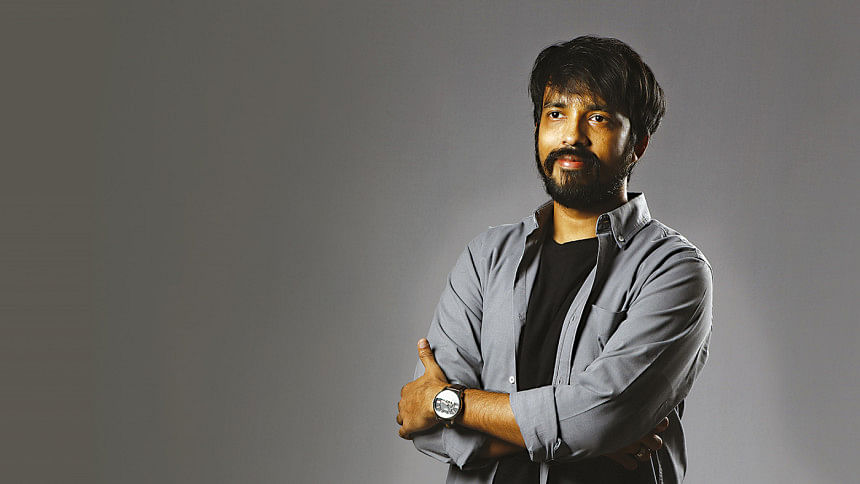“We cannot solely rely on television anymore”

Celebrated television director Mizanur Rahman Aryan reflects on the issues of family and contemporary relationships through his work. His shows, Boro Chhele, Life Insurance and Sublet, were widely acclaimed. This Eid season, his tele-fiction Upohaar, starring Afran Nisho and Mehazabien in the lead roles, was a massive hit with audiences. The Daily Star recently caught up with the director, to discuss his upcoming ventures, his take on the state of the television community and more.
Aryan has already come up with a script related to the coronavirus pandemic. He also looks to work on family-oriented and thriller stories. "As the risks of the coronavirus are still lingering in the country, my decision to start shoots will depend on how things unfold in the coming days," he adds.
Several of Aryan's tele-fictions, which were previously shot, aired during Eid-Ul-Fitr this year. The director and his crew did the post-production work for those projects online.
Aryan further addressed how the television community is going through a crisis these days, in terms of storytelling, as conflicts often come up between writers, directors and producers. "Everyone is right from their own perspectives," he says. "A producer thinks about revenue and a director wants to be creative. A scriptwriter prioritises the story above all else. In meeting their different interests, the production gets affected, on the whole. We can hardly take any risks and we also need to take factors like money and time into account at all times." Aryan also added that scriptwriters need to understand the limitations of the directors. They need to take the budget into account and visit the premises physically, when a tele-fiction is being shot.
"In the era of digitalisation, we cannot solely rely on television anymore. We also have to count our surpluses on YouTube channels, which look at the number of views on a tele-fiction," he shares. As a result, producers are interested in projects that have statistically similar content and can bring in more commercial success.
Aryan also addressed the economic downturn that the television community is faced with in these critical times. "I feel that the current circumstances demand for directors to help out struggling crew members, especially the teams that they have most recently worked with," he says. "It is not the ultimate solution, but it is a starting point."
Aryan is hopeful that the rise in the consumption of alternate media will in turn, create an increase in the demand for variety in content.
"I think audiences will look for comic relief once these difficult times come to an end. They may also lean towards family-oriented stories, as I believe that the isolation period has brought families closer together," he concludes.

 For all latest news, follow The Daily Star's Google News channel.
For all latest news, follow The Daily Star's Google News channel. 



Comments